
Posted on 03/09/2012 10:51:08 AM PST by JustaDumbBlonde

.
Good afternoon gardeners! After a high of 81 degrees yesterday, we are at 50 degrees today after experiencing high winds and 3 inches of rain last night. Radar would indicate that there is more rain to come, as I see it in Texas right now. I hope that all of our Texas gardeners are catching up on much needed rain! PTL!
We have so many new gardeners in our group, in addition to folks with the desire to begin gardening, that I thought a primer on transplanting might be useful. Please feel free to add to the discussion with your regular practices. And, as always, please feel free to ask any questions that you may have. This group loves to share information, and advice is free for the asking!
Because I plant over 100 tomato plants every year, I've got my transplanting down to a science that works for me and allows me to move down the row quickly. My tools are a bulb planter, a old spoon from the kitchen, a small bucket and several 2-liter soda bottles. (One day I'd love to do a thread on all of the common non-garden-related items we all use in our gardens.)
I start off my mixing up several bottles of a starter fertilizer, either the TNT pictured below, or Miracle Grow Quick Start. Whatever you use, make sure it is a low-nitrogen product, or you will grow lovely leaves and not much else. I also put some tomato food around the base of the tomato after transplant. Please notice the N-P-K formulation on these products. Similar products from any manufacturer are fine, these are what stores in my area offer for sale.
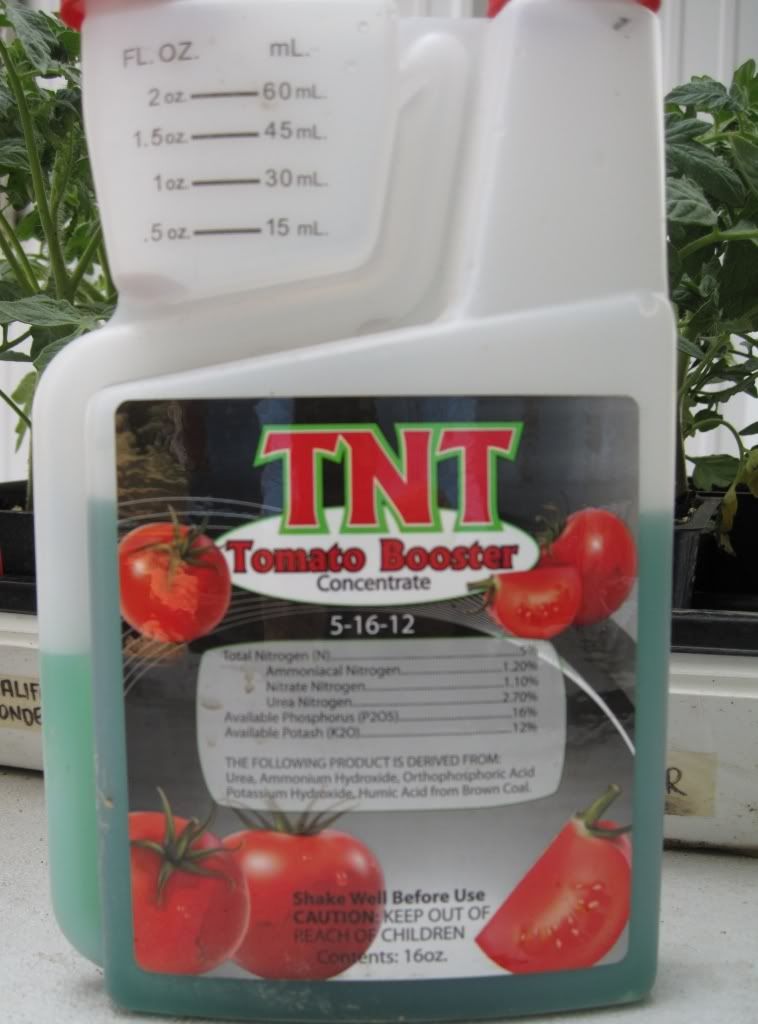
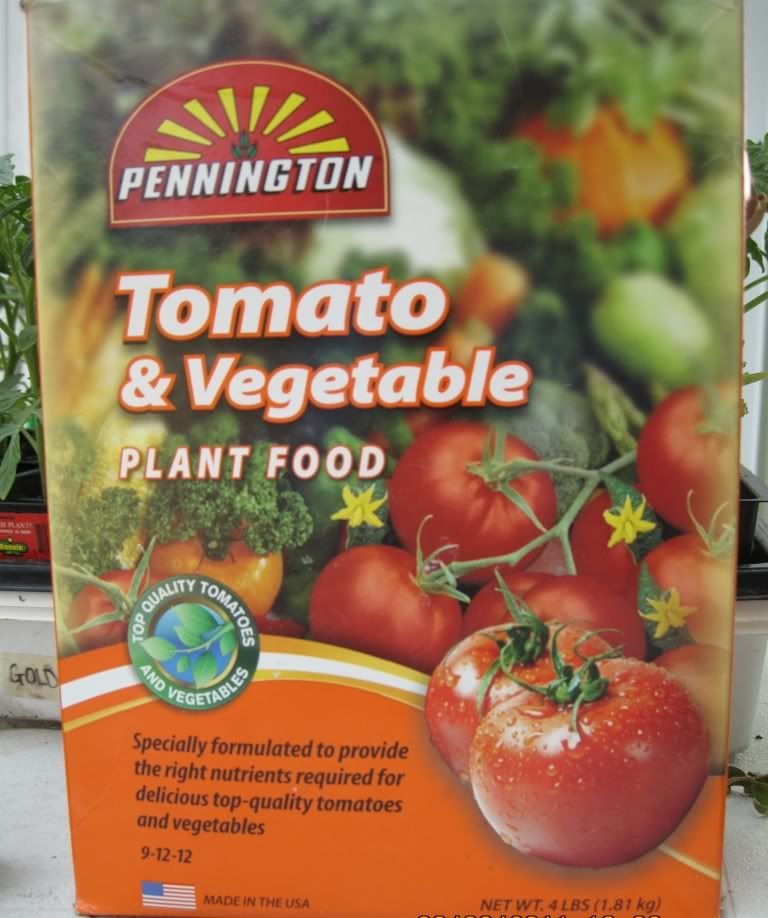
My tomatoes are planted through a commercial quality landscape fabric for weed control and moisture retention. It has other benefits, but weed control is my major concern. I begin by measuring off 30 inch increments and marking them on my fabric, then I go back and cut X's in the fabric and fold the corners under to access the soil.
Begin by digging your hole. I use a bulb planter because it makes the perfect diameter hole for a transplant that comes from a commercial 6-9 pack, or the small newspaper pots that I make myself. Tomatoes should be planted "deep", so dig your hole accordingly.
Here is an example of a bulb planter:
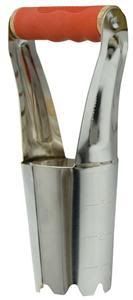
By "deep", I mean that you are going to plant more than just the roots, you are going to plant at least half of the stalk as well, up to 3/4 of the height of the plant is perfectably acceptable. Bonnie Plants, which supplies the likes of WalMart, Lowes and Home Depot garden centers, used to suggest 80% of the plant stem, but they have since backed that off to 2/3. This method is really the ONLY way to grow the strongest possible plant. Roots will develop on the entire length of the stem that is buried, giving your plants lots of roots to anchor the plant, as well as the ability to absorb more moisture and nutrients. In the photo below, the top of my index finger is indicating how deep I'm going to plant this tomato.
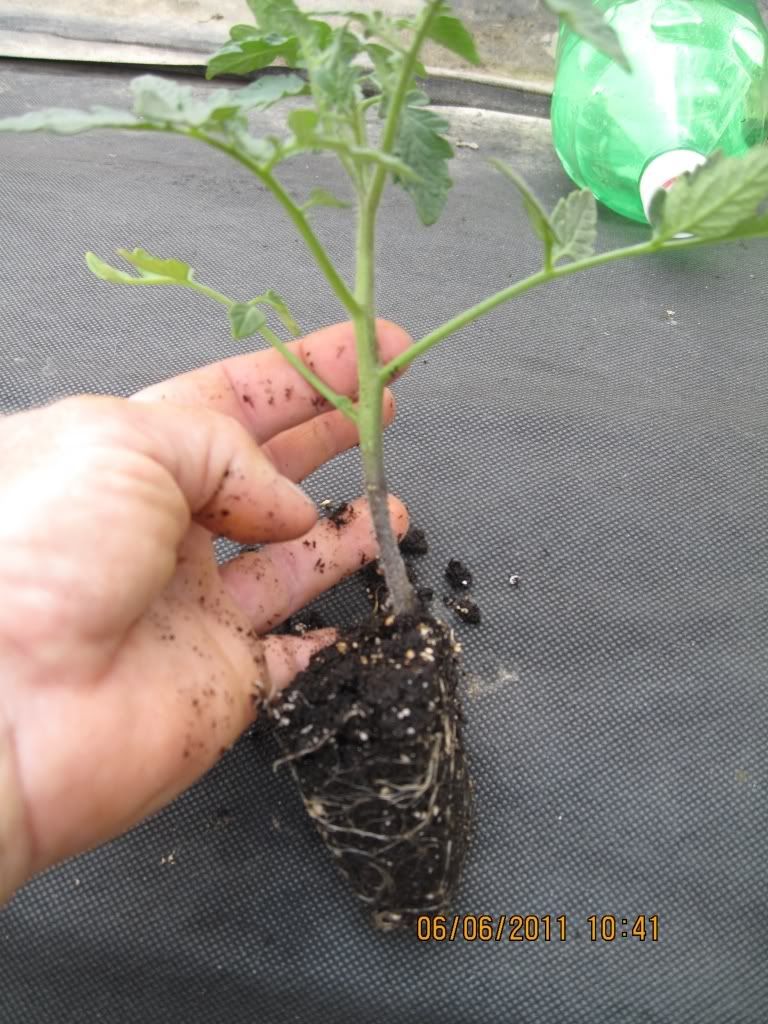
The next photo shows that I have pinched-off the leaves of the plant up to the point that I will bury the stem. This is not a required step, many folks let them stay, but it is my personal preference to remove them to avoid air pockets around the new roots.
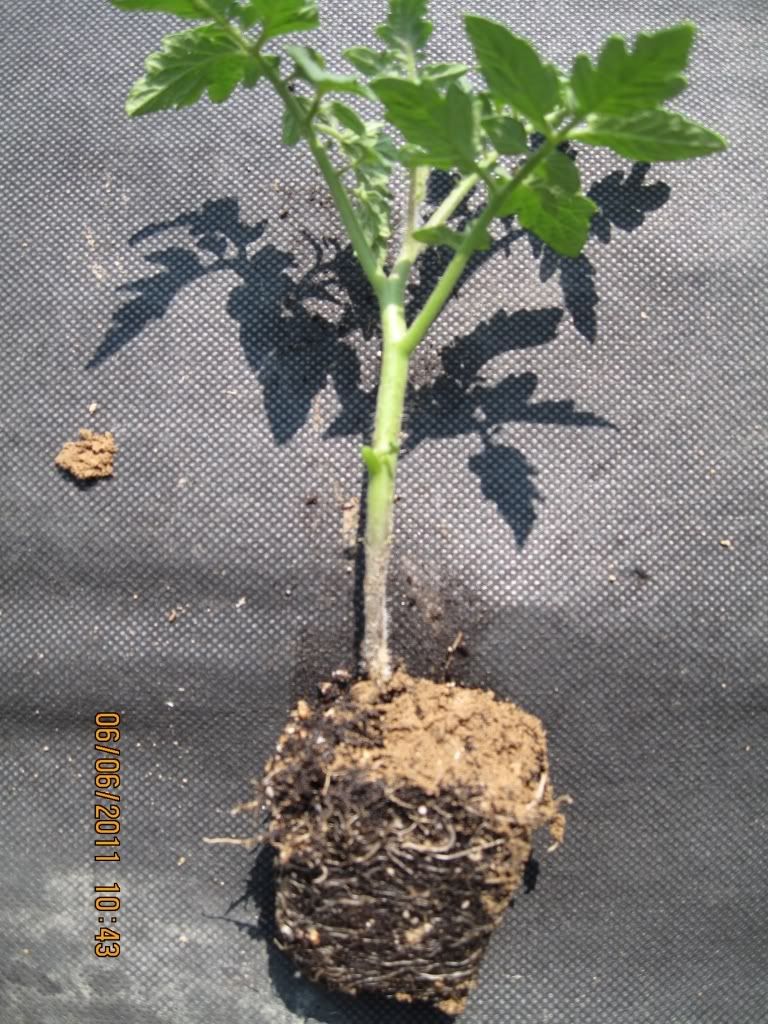
Next, gently place your plant in the hole you've prepared. You can see from the photos below that there is enough room in the hole to surround the delicate roots with looser soil to accomodate quick spread and avoid transplant shock.
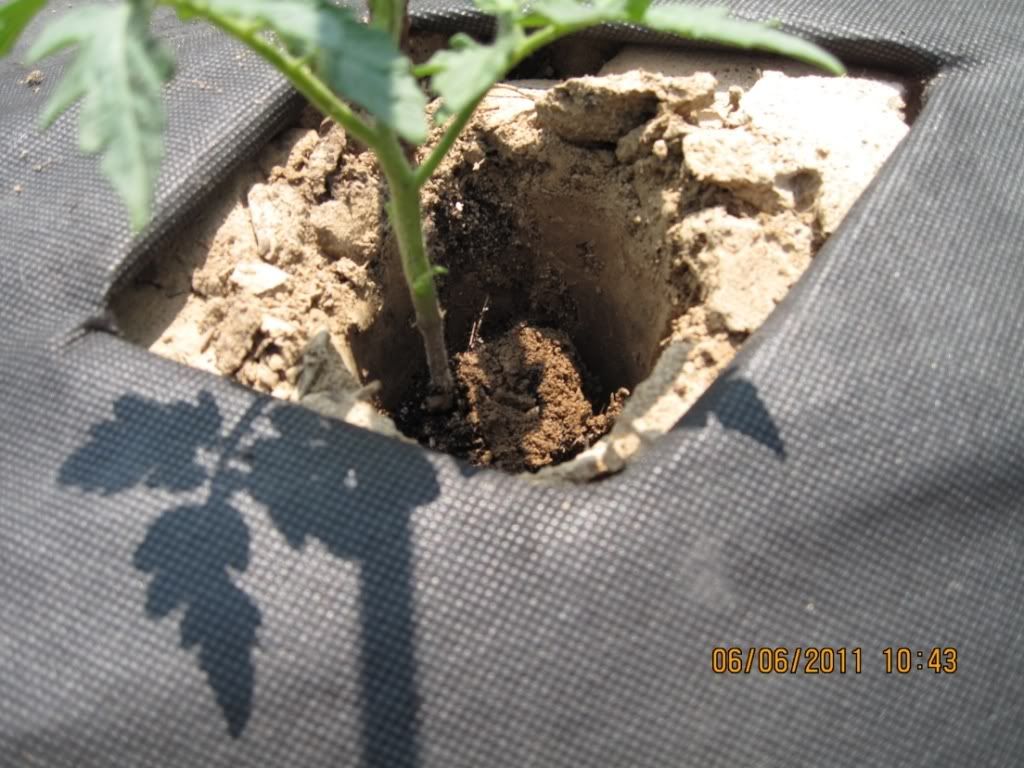
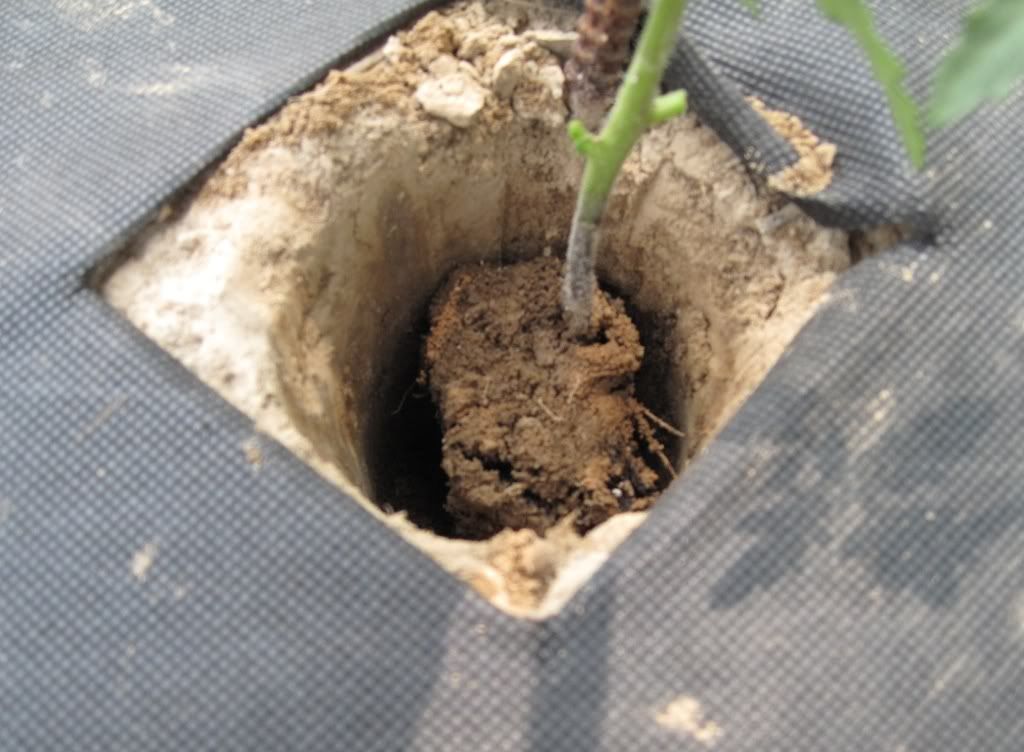
In the next step, you should replace the soil you removed with the bulb planter, just enough to cover the existing rootball. I use the small bucket to break up the soil and hold it until I'm ready to put it back. If you're not working on landscape fabric, of course you can keep the soil on the ground next to the hole. The important thing is making sure you break it up well.
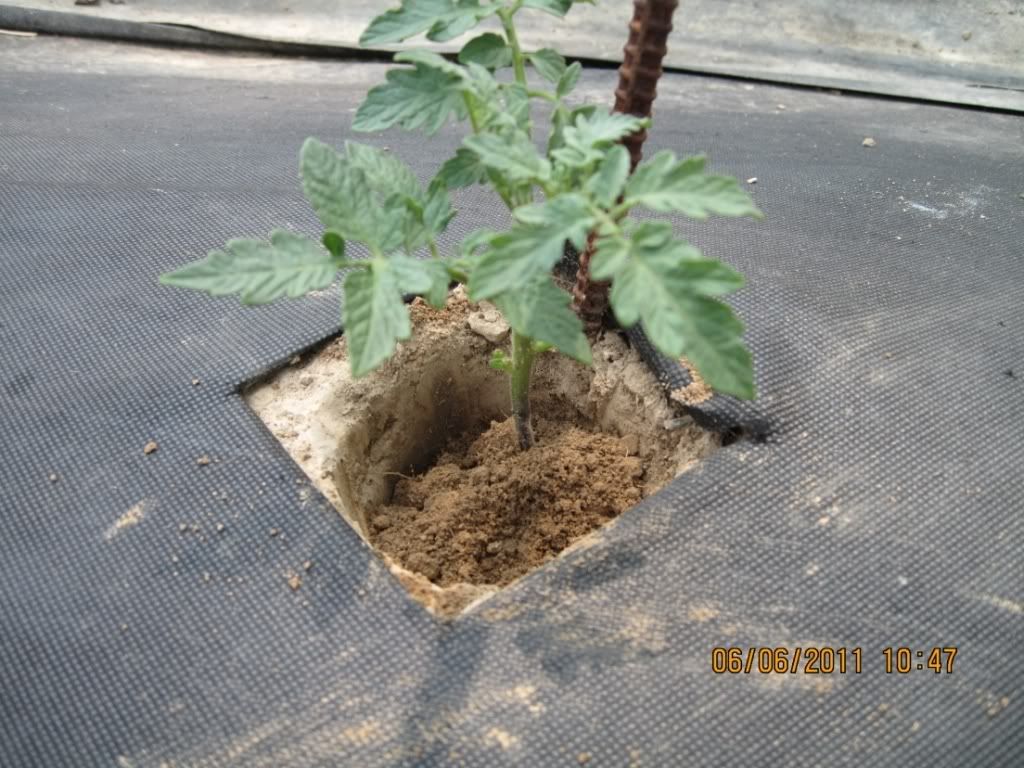
Then water that soil in with your starter fertilizer/water mixture. Water until the loose soil is underwater and then allow it to soak in. It only takes a minute or less.
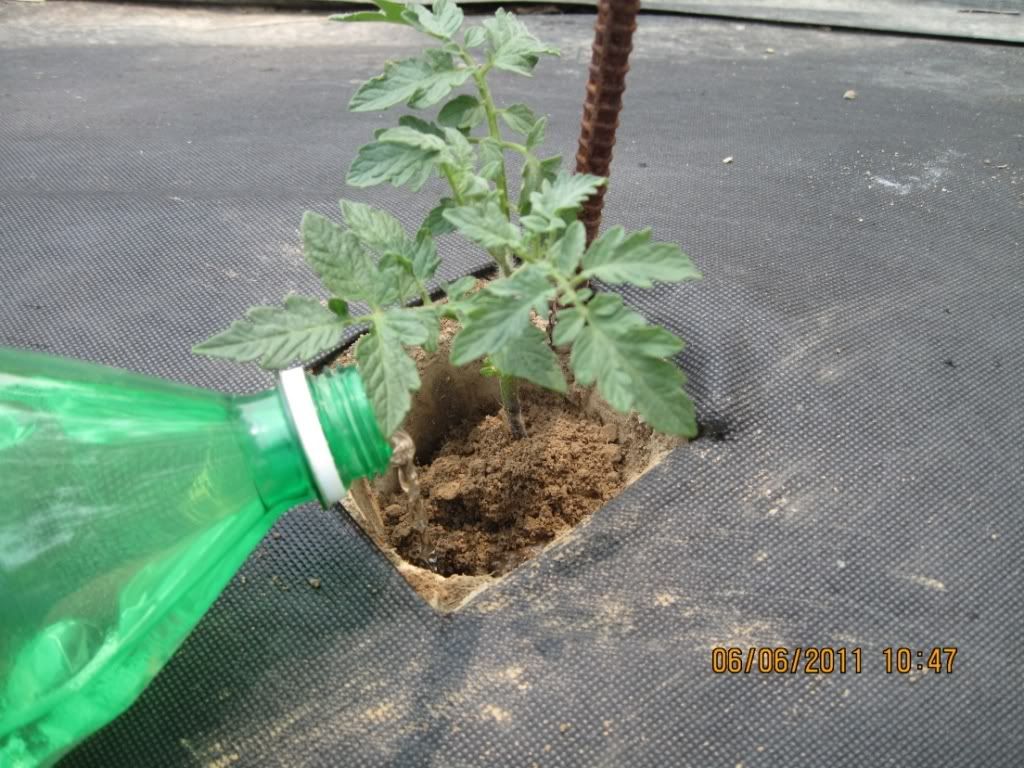
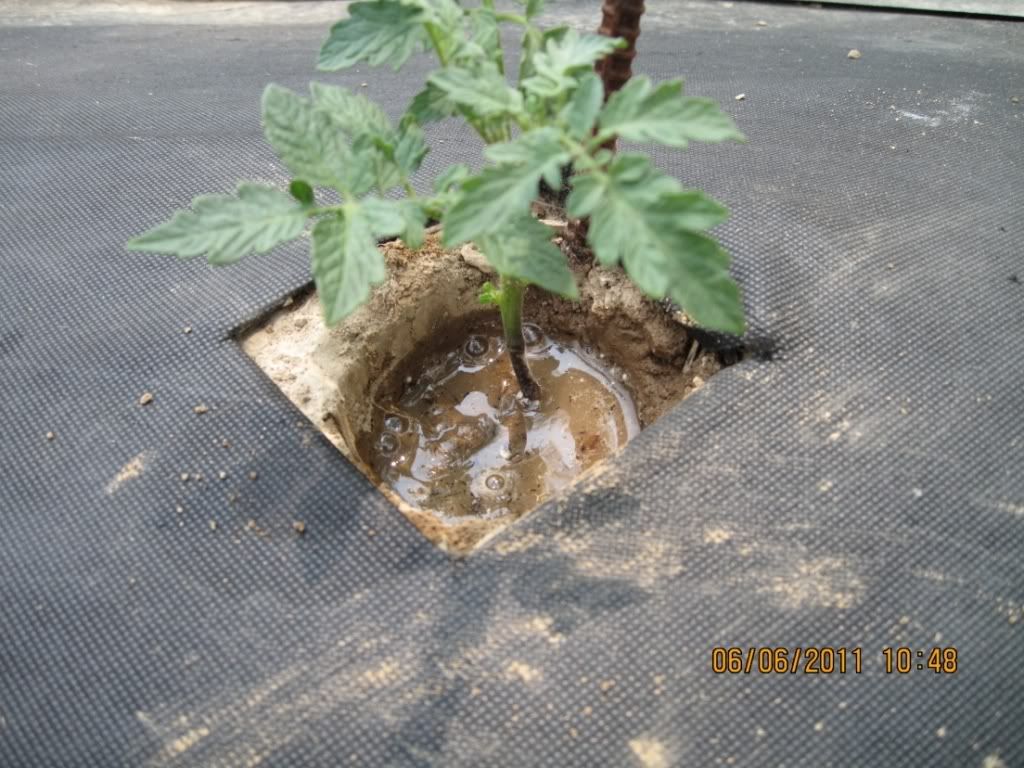
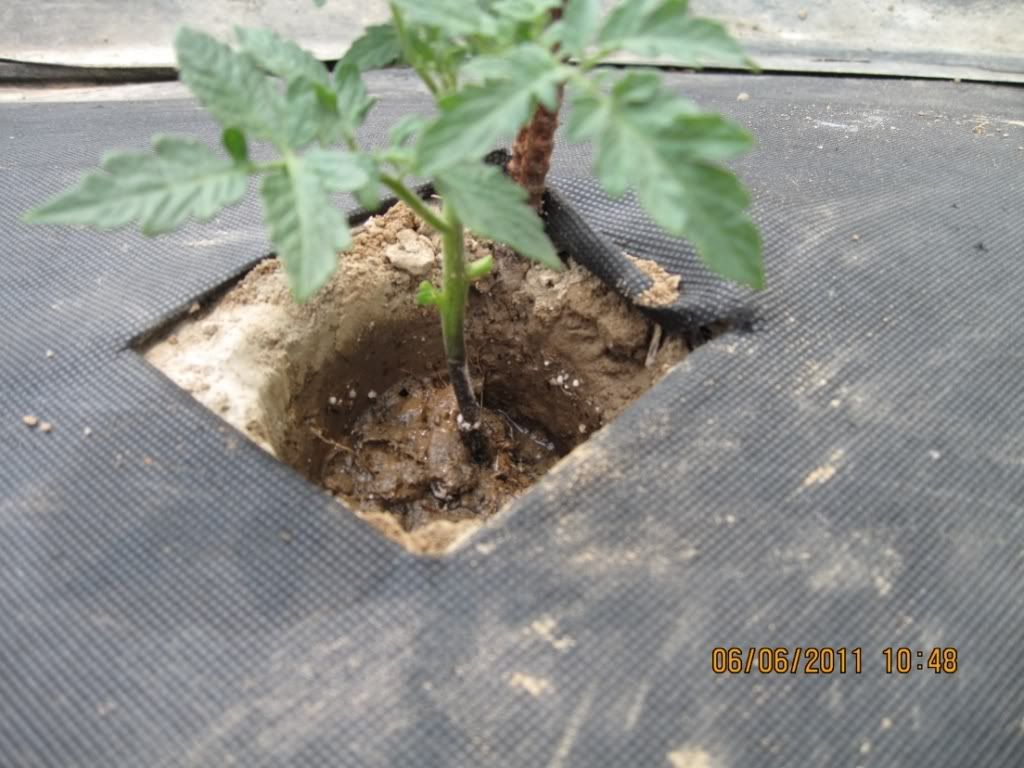
After the water soaks in and settles the loose soil, fill in the remainder of the hole, and build it up to a small pyramid. The next rain or watering will take that pyramid down to level ground and, if it doesn't, that's okay too. At this point if you have not already fertilized your soil, place a tablespoon or two of a good tomato fert around the base of the plant. DO NOT let the crystals touch the stem!
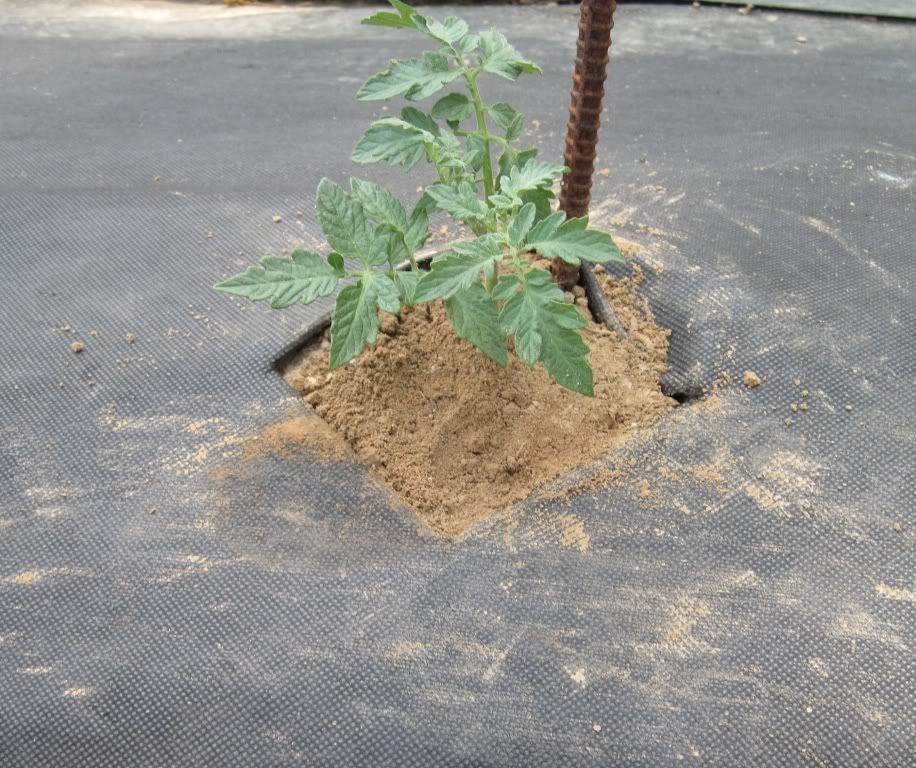
My final step is unfolding the landscape fabric to cover the soil, and standing back to watch the growth!
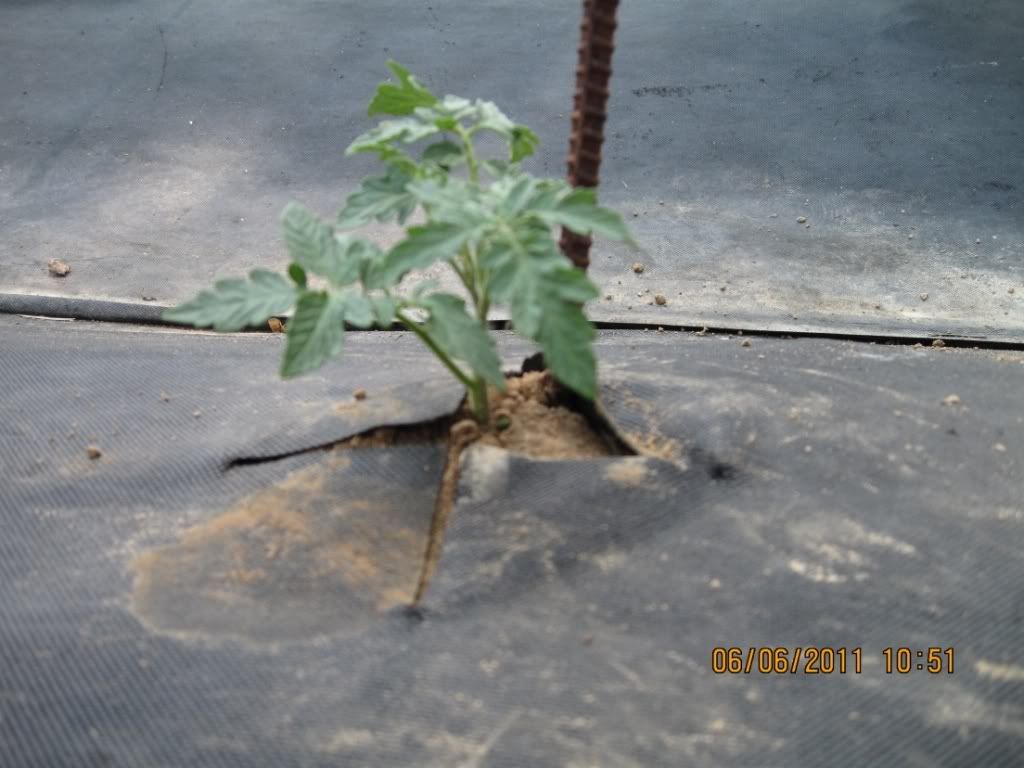
.

The Weekly Gardening Thread is a weekly gathering of folks that love soil, seeds and plants of all kinds. From complete newbies that are looking to start that first potted plant, to gardeners with some acreage, to Master Gardener level and beyond, we would love to hear from you.
This thread is non-political, although you will find that most here are conservative folks. No matter what, you won’t be flamed and the only dumb question is the one that isn’t asked.
It is impossible to hijack the Weekly Gardening Thread ... there is no telling where it will go and that is part of the fun and interest. Jump in and join us!
Poor family, I include the dog, as he’s part of the family. I’ll bet it’s miserable most of the time outside. Is there nothing the vet can do to help the poor thing?
Time to get serious!
Last year I did a lot of work in my backyard and turned over probably 400 sq ft with a spade, just taking the rocks out and mixing it up good.
This time I decided it was time to break out THE TILLER!!
This puppy ain’t some housewife tiller that you see in a department store, this guy is brutal.
MTD with a six horse B&S engine, my buddy bought it in the early 70’s and it cost 375 bucks back then, dead weight over 200 pounds, it can rattle your teeth out if you lose control...!!!
Surprised it doesn’t have a pto output shaft!
Peas, radishes, lettuce, cabbage, spinach, celery can all be started quite early. Taters too.
Beets you can sow early also.
The vet has given the dog some shots and special food, but the poor dog only is allowed to go out and do its business for now. It still loses hair if he stays outside too long.
Poor thing, hopefully the meds and special food will help it.
I’m replanting some of my radishes, and finish planting some other stuff, now that the rain has stopped and the “river” in my back yard has quit running. I’ve planted some Cherokee Trail of Tears black beans, now I’ll plant some Ky Blue Lakes. Is it time for Okra yet? My salad greens and popping up, surprising the rain didn’t bother the little seeds and so is the lettuce.
I plant lettuce almost year round. I’d wait a little longer before planting okra.
Thanks. I’ll tell her about Benedryl.
The girls have taken to one of Mrs. Augie's flower beds. They'll have the entire yard to run for another 45 days or so. Once the planting starts they stay in the hen yard.
Well, I think I’ll follow your lead and keep my lettuce growing too. In fact, I’m going to do a fall garden and when can we begin a winter garden? Ok, I’ll wait on the okra. My tomatoes are doing well. I still have a couple of molasses pots to fill. My potatoes are doing their thing, and I think I’ll plant more, but in buckets this time.
Nice photo. Is that rock on your property?
Ha! Sounds like you could break the soil and a limb or two all in one outing ... lol.
They look very content!
The rock comes out of a creek bed on the family homestead farm ~15 miles from where we live.
There’s not a rock to be found on my place that wasn’t hauled in from somewhere else.
I’ve read that, but this is very early. We’re still a solid freeze and 2 snowstorms away from our usual spring.
Today is the first day of all day sun in our new digs. I am still trying to decide on how to orient my new garden. It looks like which ever orientation I decide to take that the garden would get full morning sun until around 1 to 2 PM and then be shaded the rest of the afternoon. At least at this time of year. The shade might be a blessing this summer?
That shade may well be good. Our garden was shaded from 2pm on and I believe that is why we had live, producing tomatos last year when everyboby else had their’s burned up in the 100deg+ afternoon sun. Just my guess, for whatever it’s worth.
Yeah I think you may be right and I get your point. I had to supply artificial shade last year to my garden. Especially in the afternoon. Looked down right ugly with old white sheets draped all over the place. This is going to be an interesting season for me, as yours was last year.
Disclaimer: Opinions posted on Free Republic are those of the individual posters and do not necessarily represent the opinion of Free Republic or its management. All materials posted herein are protected by copyright law and the exemption for fair use of copyrighted works.